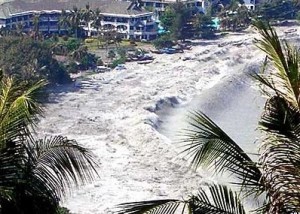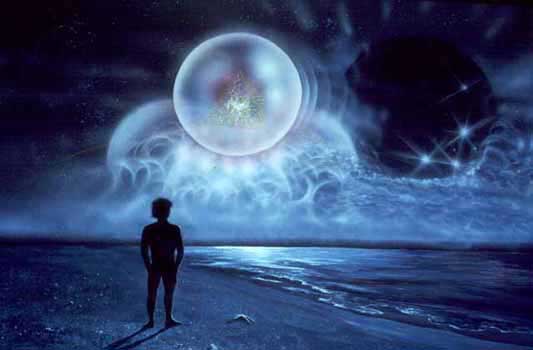‘A plague on both your houses’ is a phrase from Shakespeare’s ‘Romeo And Juliet’ that’s commonly applied to criticize warring factions whose rivalry brings ruin to others. The dead-end argument between secular materialists and religious believers is just such a futile, juvenile fight.
 Cosmologists say “most of the universe is cold, bleak, airless, and uninhabitable,” and that these ‘facts’ accord with a “secular moral picture. ” They are wrong. But so are theists who uphold the premise and primacy of a Supreme Being that created the universe.
Cosmologists say “most of the universe is cold, bleak, airless, and uninhabitable,” and that these ‘facts’ accord with a “secular moral picture. ” They are wrong. But so are theists who uphold the premise and primacy of a Supreme Being that created the universe.
Whenever I hear people talk about the chaos and meaninglessness of the universe, I feel a pang of collective sorrow and specific pity. Folks that believe this aren’t talking about life, but are saying that the man-made world is chaos and meaninglessness, and tacitly admitting they never have a moment when they see and feel beyond it.
Rather than examine the man-made world within us (it’s all there, and we’re all inextricably part of it), they externalize. That leads people to believe that life is insignificant and even futile, and that each person, as an island on a sea of inconsequentiality, must fashion his or her own meaning and purpose. There’s a half-truth to that, but like all half-truths, it’s misleading.
It boils down to one’s core view of nature, and humankind’s relationship to nature. Most scientists believe that nature’s cataclysms produce human suffering out of complete indifference to humanity; believers out of vengefulness by a skygod, or the necessity of upholding a Creator. Neither accounts for the joy of hummingbirds, much less the meditative ecstasy of the awakened human being.
It’s true that nature is completely indifferent to human suffering. But contrary to what most people believe, nature does not produce suffering, only man does. ‘Mother nature’s fury,’ whether through a major earthquake such as I’ve experienced in California, or the vastly more deadly and destructive Christmas tsunami in Indonesia, is a total misnomer.
Besides, though over a quarter million people died in the Christmas tsunami, as a 30-year-old college graduate in Aceh, the hardest hit city, said recently, “For the people who survived, they have a better future than before the tsunami. For the short term, this was a really bad thing; but for the long term, there are many, many good things that have happened here.”
For example, the tsunami ended the long-standing conflict between Acehnese separatists and the Indonesian  military. In addition, a tremendous amount of international aid money flowed into the devastated regions. Though it could have been used more effectively, it has raised the standard of living and produced many opportunities for people.
military. In addition, a tremendous amount of international aid money flowed into the devastated regions. Though it could have been used more effectively, it has raised the standard of living and produced many opportunities for people.
In the next few years, or decades, science will discover that the universe is not inimical to life, but geared (pardon the mechanistic pun) towards it. That means the idea of a “cold, bleak and airless” universe will be turned on its head. But it will not mean that there is some kind of skygod that set the whole shebang in motion, and intervenes at his will and whim in the affairs of humans.
There is something completely beyond the shrinking and suffocating circle man has drawn around himself, but the mind-as-thought has to fall silent for one to see and feel it.
The urgent question is not which one of these two silly camps, theist or atheist, is correct, but does human consciousness have any other potential and possibility than increasing darkness and destructiveness on this planet? And if so, does the indifference of nature reflect the indifference of cosmic intelligence, or does the human brain matter in the cosmic scheme of things because it embodies the capacity to see and feel the sacred?
Though I experience at least an intimation of essence beyond the mind of man on nearly a daily basis during meditative states, I still don’t know whether the mystery and intelligence that imbues the universe is operating in and on human consciousness. If so, it clearly isn’t operating effectively in the world.
Does the immanent intelligence of the universe care about the fate and future of humanity? Tentatively, I feel that it does, but obviously it can only operate to the degree that insight and intelligence flow through us as human beings.
Martin LeFevre

